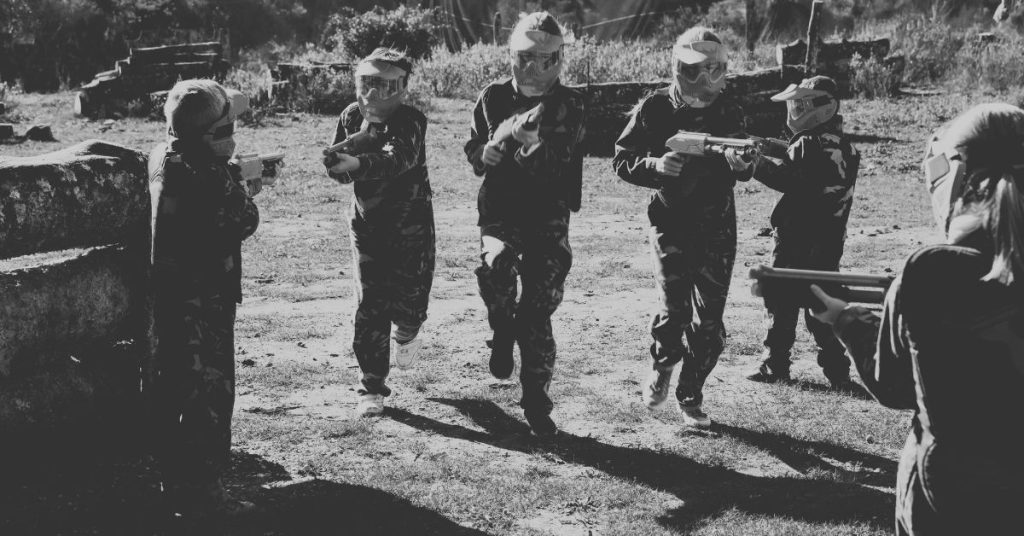You think your kid may be a natural in the sports shooting arena, and you want to get him involved. Sports shooting can teach kids several skills including responsibility, independent learning, handling peer pressure, and functioning in stressful situations.
However, there are some things to consider before you get started. Consider the child’s age, interest, and ability to focus.
Age
There are differing opinions on the age when a child should be introduced to guns. Some organizations will start at age 8 while others suggest ages 10 and above. For the most part, it depends upon the child’s interest and maturity level.
Children at younger ages tend to start off with simple weapons like BB guns and air rifles. As the child ages, the weapons become bigger and more lethal.
Interest
One parent stated that you should wait until the child expresses interest in guns before heading out to the range. If a child is not interested in shooting, then pushing the issue is not going to have a great result.
Consider the reason for wanting to teach the kid to shoot. Is it because he is interested or simply because you want a plinking buddy or future Olympian? No matter what the reason, start off easy and gauge if it’s a sport that interests your child.
Ability To Focus
The ability to focus is the most important aspect when it comes to being educated about guns. A child should never be given a gun without knowing the basics and being versed in safety. Keep the instructions short and to the point, but reinforce it often.
If the child only wants to play and refuses to listen to the rules, then forging ahead can lead to disaster. Table the activity or choose another sport that is less dangerous.
Lessons Learned
There are many lessons that can be learned from sports shooting. Many can be transferred to other areas of a child’s life. The best part is that the child will probably not realize he’s in a school of a different kind.
Learning To Fail
Learning to fail may be one of the best skills we can teach our children. While no one wants to fail, it creates great opportunity for growth.
A child that never learns to fail won’t be able to handle it when things don’t go his or her way. In sports, success and failure are instantaneous. If you hit a target, you’ll know it. If you miss, that too is obvious.
It gives the child the chance to use critical thinking to correct what went wrong and fix it. Success after a failure is more powerful than hitting the target on the first try.
Competition
Sports shooting is highly competitive and can teach the child how to challenge himself. In competition, kids are often pitted against adults. This may seem unfair but it’s one of life’s best lessons. It creates persistence and tenacity.
Additionally, children will be exposed to every type of competitor, from the newest of the new to old timers that have been competing before their parents were born.
It teaches children how to relate to people in other age groups, learn from experience, and perhaps gain a mentor.
Quality Time
Shooting sports are not age or gender specific. Unlike Hannah’s soccer game or Bobby’s wrestling match, shooting is a sport that everyone can participate in at the same time.
The entire family can have a great day plinking or attending a competition. If one or more members of a family compete, the family may have the opportunity to travel across the country. It’s a bonding experience that will last a lifetime.
Education
Ray LeBlond said, “You learn something every day if you pay attention.” What can shooting sports teach children? Critical thinking, time management, math, and physics, for starters.
Children who participate in sports show much higher levels of success in math and science than children who do not.
Introducing Shooting
The Gun
After educating your child on the basics and safety procedures involved in shooting, the next step would be to find an appropriate gun.
Until you gauge your child’s interest in sports shooting, using a gun already on hand is the smartest and most economical way to go. When choosing a gun, make sure it’s one that the child can handle safely.
If a child is injured on his first day out, chances are that’s the end of it.
When choosing a gun, consider if the child is best suited to using a rifle or a handgun. Also, consider the ammo needed and the amount of recoil.
Fun Targets
Shooting should be fun, especially for kids. To keep it light, pick out some fun targets. There are paper targets on the market that incorporate several games to keep the child’s interest. Family members can compete against each other in a lighthearted way.
It builds the child’s confidence and skill level without adding pressure. You might also want to choose tin cans or steel targets that create a noise when hit. Moving forward, you may want to incorporate skeet shooting. Every kid likes to see things explode.
Keep it Simple
Remember that teaching shooting should be easy and fun. Approaching a lesson like an Olympic trial isn’t going to make the kid want to continue. Always keep safety measures in mind, but create games to engage the child.
If the child makes a mistake, point out what he did right and help him to correct his mistakes in a gentle way. Pushing too hard will cause a child to lose interest.
Bring a Friend
Kids like to be around other kids. If your child has a friend who would like to tag along, encourage it. Maybe that friend has a parent or sibling that also enjoys shooting. Creating a fun day out will only encourage your child to continue, and by continuing, to improve.

